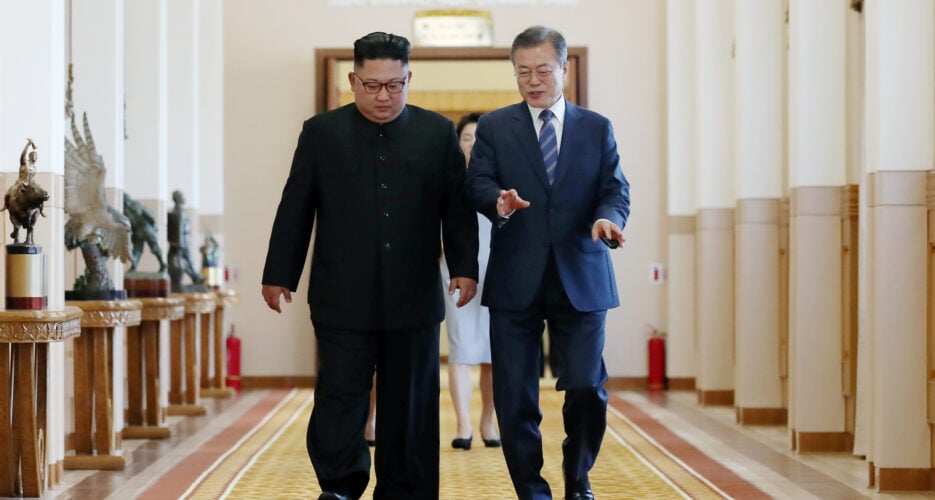For months now, South Korea tried to stamp out North Korean defector groups’ activist work in an attempt to appease the North. Now, President Moon Jae-in’s reputation as a human rights lawyer with a squeaky-clean image may be at stake — especially as the DPRK continues to recede from diplomatic talks.
Earlier this summer, North Korea blew up the $8.6 million inter-Korean joint liaison office on June 16 — a move that, according to its state media, was provoked by defector-activist groups’ routine balloon launches sending informational leaflets over the border. Since then, local governments on the South Korean side have banned these launches, police have launched investigations into specific activist groups, and authorities have even moved to revoke a key permit from two of them.
For months now, South Korea tried to stamp out North Korean defector groups’ activist work in an attempt to appease the North. Now, President Moon Jae-in’s reputation as a human rights lawyer with a squeaky-clean image may be at stake — especially as the DPRK continues to recede from diplomatic talks.
Earlier this summer, North Korea blew up the $8.6 million inter-Korean joint liaison office on June 16 — a move that, according to its state media, was provoked by defector-activist groups’ routine balloon launches sending informational leaflets over the border. Since then, local governments on the South Korean side have banned these launches, police have launched investigations into specific activist groups, and authorities have even moved to revoke a key permit from two of them.
Become a member for less
than $5.75 per week.
Unlimited access to all of NK News: reporting, investigations, analysis
The NK News Daily Update, an email newsletter to keep you in the loop
Searchable archive of all content, photo galleries, special columns
Contact NK News reporters with tips or requests for reporting
Get unlimited access to all NK News content, including original reporting, investigations, and analyses by our team of DPRK experts.
Subscribe now
All major cards accepted. No commitments – you can cancel any time.













